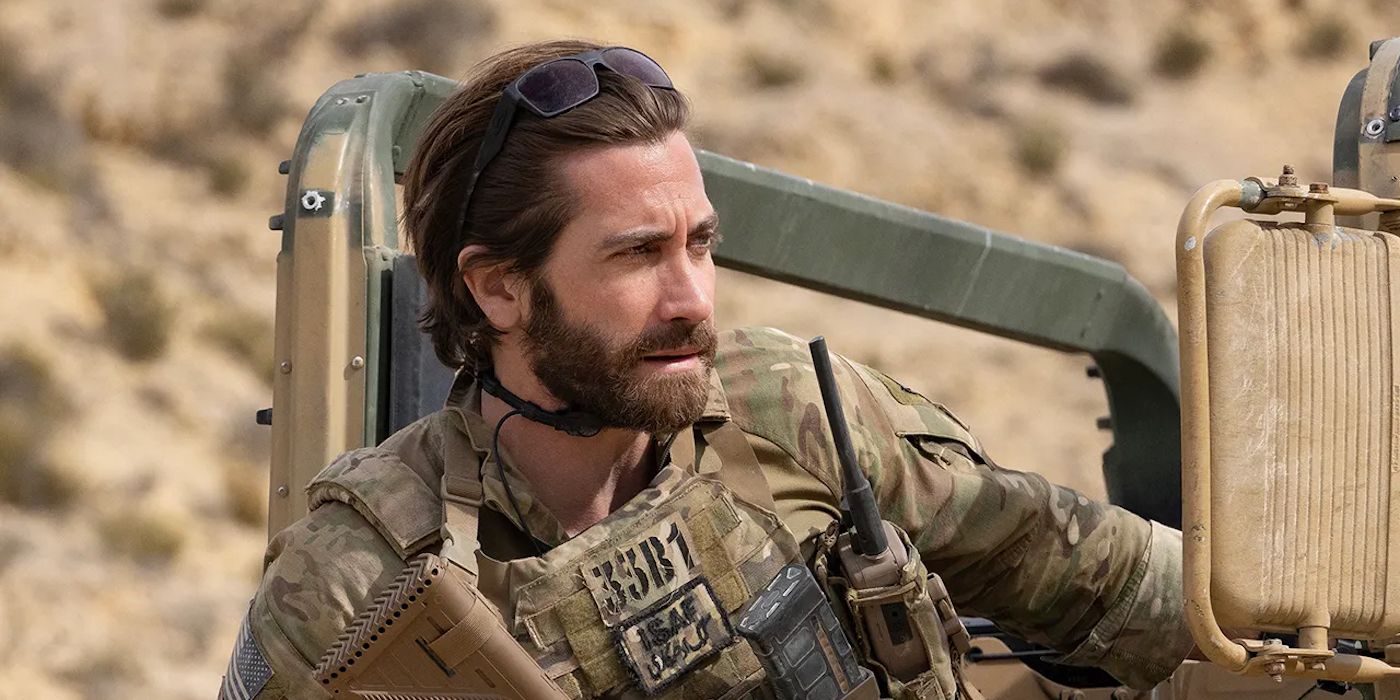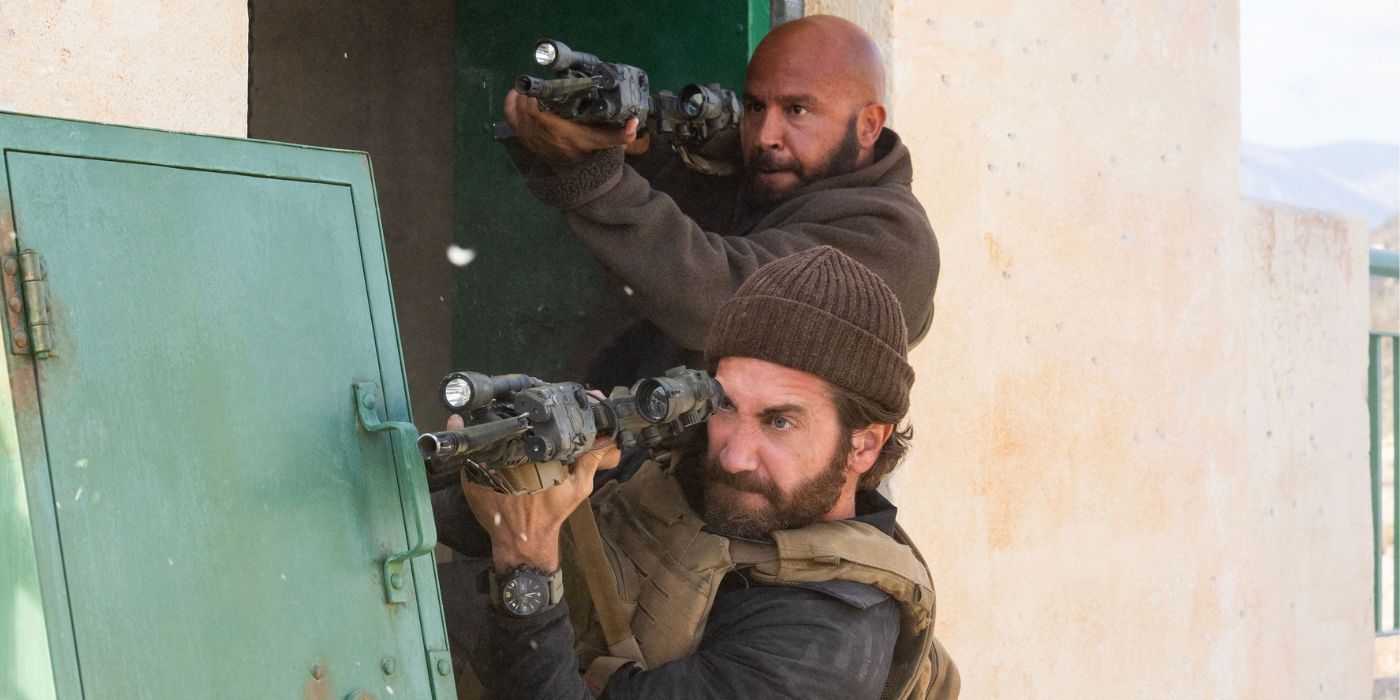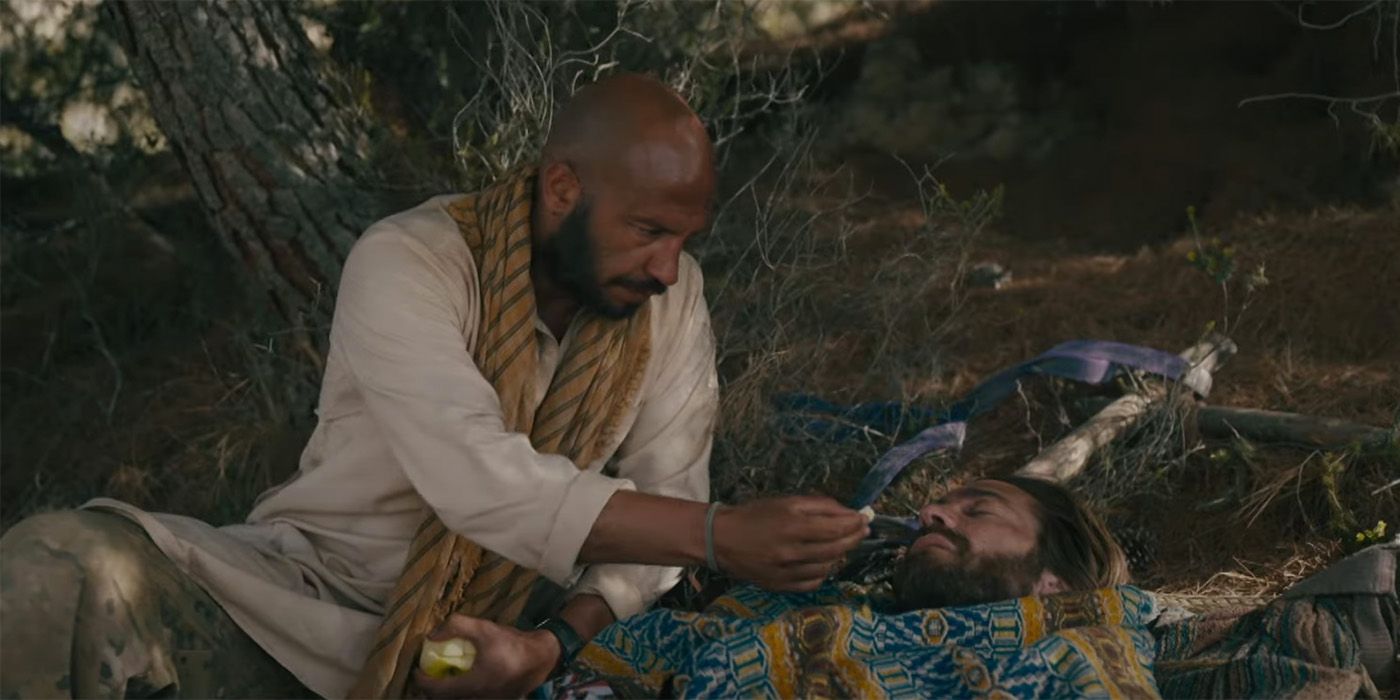In 2005, actor Jake Gyllenhaal starred in the grounded cinematic depiction of war that was Jarhead. A darkly humorous yet haunting film, it stripped away genre thrills to place us right in the midst of what could be an equally mind-numbingly boring and brutal tour of duty that most other movies would seek to gloss over. Following its release, at the time of writing, there have now been three atrocious direct-to-video sequels that jettisoned any of the original work’s introspection to just be essentially shoot ‘em ups capitalizing on the name recognition of the title. They were cash grabs whose lack of imagination in their filmmaking was matched only by the creative bankruptcy of their narratives. Gyllenhaal had no involvement in any of them, instead going on to make far more interesting works that actually felt like they had a vision behind them. So why discuss these movies that most wouldn’t even give a second thought and are likely sitting forgotten in the bottom of a bargain bin somewhere? Well, it is now Gyllenhaal’s latest that is more akin to those direct-to-video sequels than it is anything else.
Guy Ritchie’s The Covenant is certainly more well-made and written than any of those Jarhead sequels. However, in addition to damning with faint praise, if you look closely at the film for more than a second, you see that its core is largely the same. Though slightly less rah rah, it still is defined by a bunch of haphazard gun fights that treat most of the characters as disposably as those who they mow down before arriving at what borders on being an insulting resolution. There is an admirable attempt to reflect on the plight of interpreters who have gone abandoned by the United States government, but this is undercut by the way this character is largely sidelined in the story with an egregious lack of emphasis that is given to his world.
Some of this is to highlight the way a cruel bureaucracy moves slowly for those that it deems to be expendable, but that is only breached from a distance. No matter how much it believes itself to be saying something more, this is a film which is primarily about action that looks and feels like it could almost be a mobile game with effects that end up being as hollow as the narrative itself. For all the ways the performances try to give it some sort of emotional heft, they are undone at nearly every turn until it arrives at an explosive conclusion where the characters all get lost in the hustle and bustle of increasingly empty CGI spectacles.
This begins with an opening scene where we are introduced to Sergeant John Kinley (Gyllenhaal) whose work in modern-day Afghanistan involves finding bombs from the Taliban. When an explosion takes the life of his current interpreter, he will need to find another one if he is to continue going out on missions. Enter Ahmed, played by an endlessly dynamic yet bafflingly underutilized Dar Salim, who works for the military for what he says is money while also carrying with him personal motivations for joining. He is a character who seems to contain multitudes that Salim captures with every facet of his performance and should have been the protagonist of this film. Alas, we instead only get hints of this superior story.
The first encounter the two have, with John leaning back in a vehicle while essentially grilling Ahmed, is understated yet still crackling with energy. The way it is shot, with Gyllenhaal captured in the reflection of the side mirror, gives it a complicated emotional undercurrent as it establishes how his cocky character is always watching with almost detachment. Ritchie is not unaware that there is an inherently exploitative imbalance to their relationship as one of the two must live here with the consequences of what they do together. John's departure will obviously carry with it trauma that can last a lifetime, but the danger remains something that Ahmed will not just be able to leave behind so easily. When a remote operation goes terribly wrong, resulting in the deaths of their entire team, the two of them will have to find a way back to base while being hunted by waves of faceless Taliban forces. It is like a survival mission in a bad video game where everything just keeps cycling through the same encounters.
With that in mind, there are moments in this middle part of the film which are tense and well-constructed. Even a sequence where Ahmed and John must throw themselves down a steep incline carries with it a sense of grim terror as either getting seriously injured could be the end. Though the repeated cutaways to the Taliban leaders ordering their forces to keep going feel cartoonish and undercut the impact of the more grounded scenes, there is something gripping when all this excess noise fades away. When John is seriously wounded, the way the panic and pain we see in Gyllenhaal’s face slides into a detached state of delirium feels real.
As Ahmed must then carry him the rest of the way, Salim carries the weight of both his costar and the movie itself on his shoulders. It is a journey that becomes almost a nightmare as death and despair bear down on him. The trouble comes following this as the story grinds to a halt as, instead of sticking with Ahmed, we almost solely follow John as he is taken back to the states. In addition to just being less engaging from the outset, this element of the story remains underwritten as he grows distant from his woefully one-dimensional wife and sinks into a pit of his own guilt. The small looks we get of Ahmed during all these are infinitely more impactful yet the film is awkwardly insistent on focusing on the least interesting storyline.
A degree of this can be chalked up to ensuring we feel the full weight of the disconnection and helplessness John is meant to be feeling before taking matters into his own hands by going back. While understandable, it also filters all of the film’s emotional journey through him as opposed to the character and his family that this is ostensibly meant to be about. Instead of seeing what he is going through in his day-to-day life, all of this becomes about John’s redemption. By holding Ahmed at such a distance, save for one particularly harrowing scene, the film does itself and him a disservice that it never recovers from. When we get into the final act of yet more shootouts, this brings into focus just how little we actually got to know him. Salim still gives a great performance, elevating thin material with every moment he gets, but this structural shortcoming to the narrative is one element he can’t fix. For all the moments the film throws in random on-screen text that explains the often obvious military terminology, it seems less interested in the interiority of Ahmed beyond the superficial broad strokes.
As it then marches towards a conclusion defined by chaos as well as the inexplicable choice of making a private military contractor an unlikely savior, there is just nothing left to cling to. Though possibly well-intentioned, the execution of The Covenant ensures its narrative and thematic potential is drowned out in the roar of gunfire it becomes far too enamored by.
Rating: C
Guy Ritchie’s The Covenant is in theaters now.



